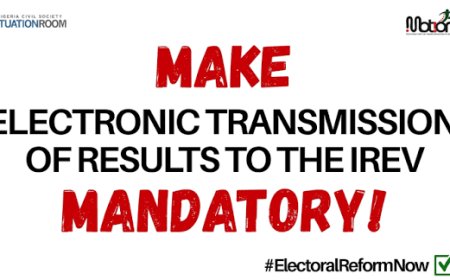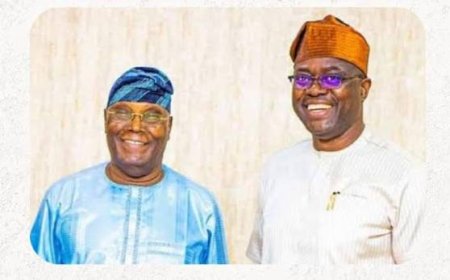Social Media And Content Creation Craze
We live in a strange new world. It is a world where poverty and prosperity can change places overnight, all thanks to the viral power of social media. TikTok, Facebook, Instagram, YouTube, and their cousins have become the digital marketplaces where lives are auctioned for likes, shares, and comments.

By Chris Agbedo, PhD
We live in a strange new world. It is a world where poverty and prosperity can change places overnight, all thanks to the viral power of social media. TikTok, Facebook, Instagram, YouTube, and their cousins have become the digital marketplaces where lives are auctioned for likes, shares, and comments. The promise is simple; generate content that captivates, shocks, entertains, or even disgusts, and in return, the currency of the digital realm – dollars, pounds, euros – will rain down like manna from the algorithmic heavens.
Trust Nigerians; many have jumped on this bandwagon with reckless abandon. Almost every netizen is now a “content creator,” or so they claim. Some create genuinely engaging material. Others push out mindless, meaningless content. And then there are those who, in their desperation for views and virality, descend into the outright macabre, capturing moments that should be private, sacred, or even mournful, turning real human suffering into digital spectacle.
One of the most horrifying recent examples of this growing social media obsession was the case of Kemi Falojimi, a pregnant woman who died due to complications after a Lagos hospital allegedly demanded an upfront payment of ₦500,000 before treating her. Her husband, Akinbobola Folajimi, claimed that a private hospital in Iwerekun 1, Ibeju/Lekki, refused to treat her because he couldn’t make the payment immediately.
As tragic as the hospital’s alleged refusal is, it is Akinbobola’s actions that raise troubling questions about the state of our collective humanity. Instead of focusing solely on saving his wife’s life, he found time to record a video of her in distress, pleading with her to stay strong, and then shared it on social media. In the now-viral footage, his visibly weak wife is seen in a car, struggling to remain conscious as he desperately calls her name. Astonishingly, while facing what should be one of the most harrowing moments of his life, Akinbobola had the presence of mind to hit “record” on his phone. And then, perhaps in what he saw as the natural next step, he shared the footage online for the world to see. Was it for awareness? Was it to document his pain? Or was it for the digital validation that comes with thousands of comments and shares? Please, somebody should help me wrap my head around this unfolding absurdity!
Surely, the tragic death of Kemi is not just another sad headline; it is a glaring symptom of the grotesqueness and ridiculousness that now defines the age of social media-driven content creation. What should have been a moment of desperate, private struggle for life was transformed into a public spectacle, a scene in the never-ending digital theatre of human suffering. Grotesqueness is often associated with the absurd, the unnatural, and the perversion of normalcy. What could be more grotesque than a man, witnessing the slow death of his pregnant wife, yet finding it necessary to pull out his phone and record? What could be more unnatural than prioritizing digital documentation over immediate, frantic efforts to save a loved one? The sight of Kemi, visibly weak and slipping away in that video, is a haunting image—one that reflects not just personal tragedy, but a disturbing shift in human priorities.
And then comes the ridiculousness of it all. The sheer absurdity of the moment—how a husband, faced with an unimaginable crisis, chooses to perform his grief for an online audience rather than fully immersing himself in the urgent task of keeping his wife alive. His repeated calls to her, his desperate pleas, all while making sure the camera captures the moment, suggest a bizarre duality: part genuine distress, part calculated documentation. What was he thinking? That filming the moment would somehow make it more real? That an outpouring of social media sympathy would miraculously change the reality before him?
Social media has rewired our brains, making us believe that no experience—no matter how personal, painful, or private—is complete until it is posted online. We have entered a world where content has become an all-consuming god, demanding the sacrifice of real human moments on the altar of virality. In Kemi’s case, her suffering was reduced to a viral clip, a conversation starter for thousands who scrolled past, commented, shared, and moved on. This is where we are now—a society where pain is packaged for engagement, where tragedy is converted into metrics, where the dying are filmed instead of rescued. This is the grotesqueness and ridiculousness of modern content creation. And it is only getting worse.
This is the madness of our age; a generation that has, in many ways, lost touch with basic humanity; a generation where nothing is too sacred to be monetized, not even a dying loved one. This is not to say that people should not tell their stories or expose injustices through social media. In fact, many social movements—from #EndSARS to calls for better healthcare—have gained momentum through online activism. But there is a fine line between using social media for advocacy and exploiting tragedy for engagement. In this case, what should have been a private, painful moment became content. A dying woman became a prop in a real-time digital narrative. Her suffering became a performance, not just for those physically present, but for an unseen audience scrolling endlessly on their phones. The digital world moves fast—soon, there will be another tragedy, another video, another viral moment. But in the fleeting instant of online virality, do we pause to consider the price of such exposure?
It is time to ask ourselves some difficult questions. Have we become so desensitized that we no longer react to real human suffering unless it comes with high-definition footage? Have we traded empathy for engagement metrics? Have we sacrificed basic human decency at the altar of clout? Akinbobola’s case is just one example of a growing trend where individuals, in the most traumatic moments of their lives, instinctively reach for their phones instead of reaching for solutions. We have seen similar instances; victims of accidents filming themselves instead of calling for help; parents recording their children’s distress instead of comforting them; strangers capturing people in medical emergencies instead of offering assistance.
Beyond the grotesqueness of turning personal tragedy into social media spectacle, another troubling aspect of content creation in Nigeria today is the deliberate misuse of digital spaces to spit on culture, distort values, and normalize obscenity. Nowhere is this more evident than in the way some users—particularly teenagers—flagrantly violate cultural taboos, especially regarding language use and sexual discourse. In Igbo culture, as in many African societies, reproductive organs are not casually mentioned by name. Nor is sexual intercourse discussed in an explicit, vulgar manner. There are proverbs, euphemisms, and culturally sanctioned ways of addressing such matters, all designed to maintain decorum and respect. But in the reckless world of social media, all of that has been tossed aside.
Today, it is common to see young girls, barely out of their teenage years, hosting social media “tutorials” on sex, brazenly discussing intimate acts, and calling body parts without reservation. What was once private is now performed publicly. What was once sacred is now trivialized for clout and engagement. What should be personal conversations between parents and children, or at least discussed with cultural discretion, is now sensationalized on TikTok, Instagram, and Twitter for views.
This is not just a case of youthful ignorance; it is a fundamental collapse of cultural consciousness. The digital age has created a generation that measures worth by how much attention they can command, even if it means stripping themselves of cultural dignity. What they fail to realize is that social media does not forget—the reckless videos they create today will follow them into the future, shaping how they are perceived, employed, and treated in real life. But this trend is not just about individual choices; it is a symptom of a larger problem—the commodification of culture and morality for online validation. In the West, where these explicit discussions are normalized, such behaviours exist within a legal and social framework. In Nigeria, however, where moral and cultural values still (at least theoretically) hold weight, this blind copying of foreign digital trends is not just absurd—it is dangerous.
The need for cultural reorientation has never been more urgent. Social media is here to stay, but we must reclaim it as a tool for empowerment, not debasement. If left unchecked, the current trajectory will lead to a generation completely detached from the cultural principles that once defined African identity. And when a people lose their culture, they lose everything. Social media is a powerful tool. It has helped amplify voices, expose injustices, and connect people across the world. But it is also turning many into spectators in their own lives, prioritizing content over real human connections. If this continues unchecked, we may soon find ourselves in a world where people will film themselves drowning instead of swimming to safety—just for the banal purpose of ‘share’, ‘comment’, ‘like’.
This madness must stop. Not everything should be content. Not everything should be for public consumption. Sometimes, real life demands real action, not just real-time recording. We as human beings must take back our digital spaces from this craze. We must choose dignity over vulgarity, empathy over engagement, and humanity over clout. If we fail to do this, we risk raising a generation that knows no boundaries, no values, and no respect for life itself.
.
AGBEDO is a professor of Linguistics, University of Nigeria, Nsukka.
What's Your Reaction?

































































